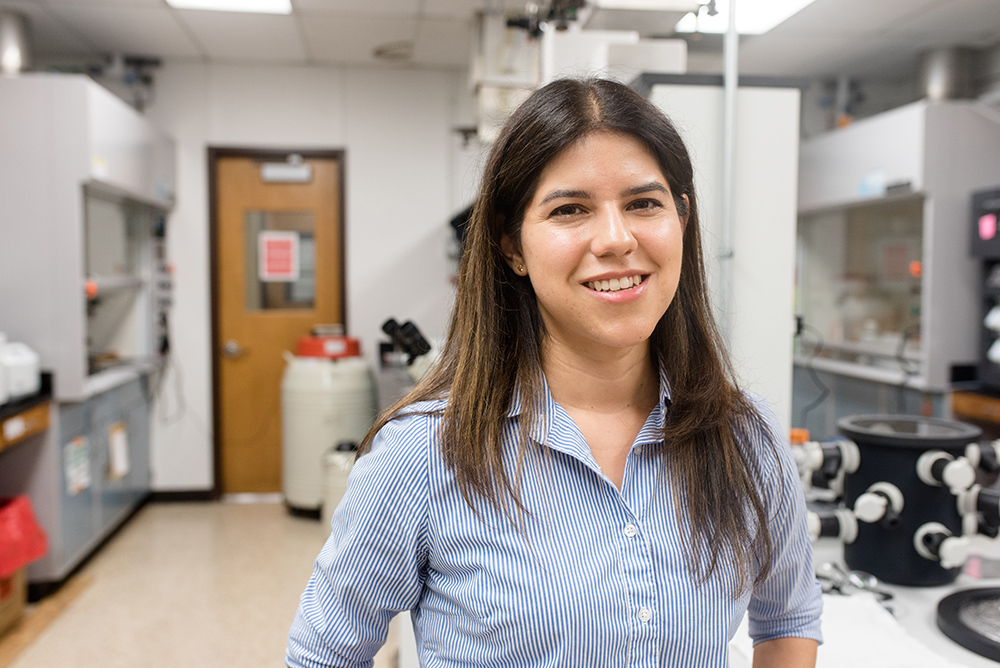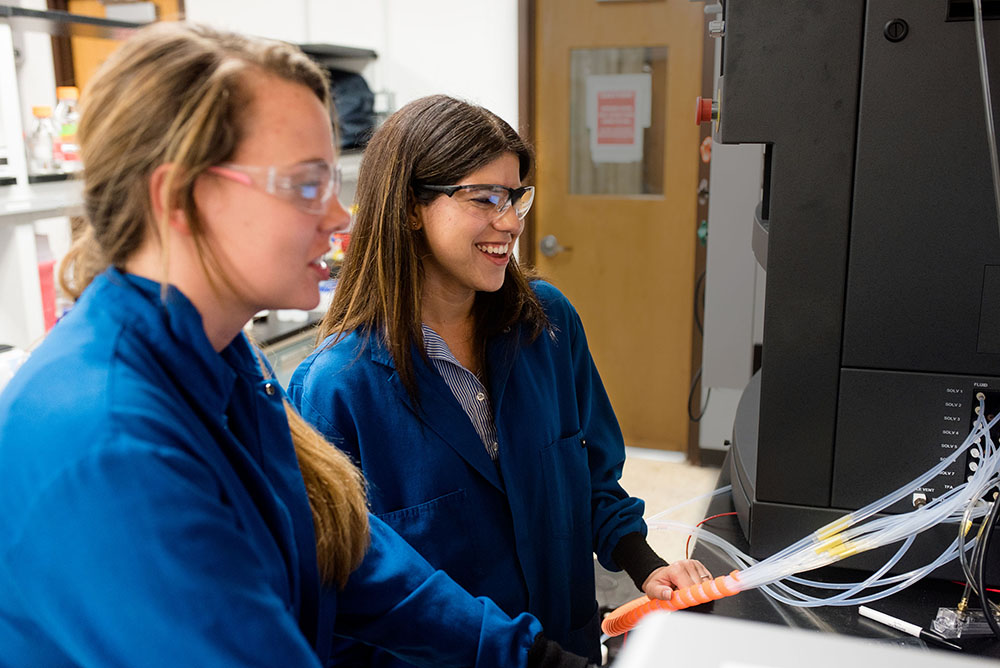After graduating from the Cockrell School in 2007 with a bachelor’s degree in chemical engineering, Adrianne Rosales knew that research was her passion. The next step was finding the right way to make it a fulfilling career. She went on to earn her Ph.D. from the University of California, Berkeley, in 2013 — the only question remaining was whether to conduct her work on biomaterials in academia or industry.

Ultimately, the opportunity to train the next generation of engineers led Rosales down the academic path, which brought her to the University of Colorado, Boulder, as a postdoctoral research fellow. When she was recruited to return to her undergraduate alma mater as a faculty member in 2017, she knew she couldn’t pass up the offer. We sat down with Rosales, an assistant professor in the Cockrell School’s McKetta Department of Chemical Engineering, to talk about the importance of teaching and the significance of returning to the Forty Acres, where multidisciplinary collaboration shaped her undergraduate experience and continues to shape her career.
How did teaching influence your decision to become an engineer?
I had a really good physics teacher in high school who had a way of building confidence in his students. After one test, he pulled me aside and said, “Just so you know, the last people who did this well on this test became engineers.” He talked to me at length about where they went to school and how their careers panned out, and that advice and mentorship planted the seed for me.
How did your undergraduate experience inspire you as an engineer and researcher?
I started out in both engineering and UT’s Plan II honors program, and I really loved the literature and philosophy courses I was able to take. A significant part of my current job is writing research proposals and grant applications, and the skills I acquired through Plan II have been a huge help in these areas. By offering programs like Plan II and encouraging students across campus to work together on projects and ideas, UT makes it so easy to get a well-rounded education. I also like how large and diverse this community is, and I enjoyed being at a university that was so good at so many things. As an undergraduate, I had a feeling that there was no limit to what we could accomplish here in the Cockrell School. Today as a professor, I am certain of it.

Why was academia—and its combination of research and teaching—the right choice for you and your career?
I like the flexibility of doing research in academia and working on difficult problems, but I also like working with young engineers. I particularly love my interactions with undergraduates. It’s so inspiring to talk to them about their lives, their career plans and how they see chemical engineering evolving in the future. Many of our students go into industry, but some are considering more nontraditional careers, too. Their optimism about the many ways they will be able to use their degrees is infectious.
Describe the experience of returning to UT Austin as a faculty member.
It means a lot to me. When I accepted my offer, [McKetta Department of Chemical Engineering chair] Tom Truskett talked about ‘coming home’ to the department, and that really is what it feels like. I’ve interacted with many professors who were here when I was a student, and connecting with them on a different level has been incredible. I’m also teaching in the same classrooms from my undergraduate days, so I feel a great degree of personal connection with the students. Ten years ago, I was literally where they are now!
How has the growing collaborative environment in the Cockrell School enriched your work?
My research focuses on designing ex-vivo (on the benchtop) environments that better mimic the human body, which has applications in a number of areas. For example, if you can screen drugs in an environment that more closely resembles the body, you can get more accurate results. Since my work pulls not just from concepts in chemical engineering but also from materials, biology and other fields, it’s great to walk across the street and talk to colleagues in biomedical engineering or molecular biosciences and get their input. The UT community is so vibrant and collaborative.
What is the most important advice you pass on to your students?
These students are so smart. You can give them almost any math problem, and they can probably figure it out on their own. But what I encourage them to think about is the open-ended problem where there is no one right answer. For some engineering students — and this was true for me, too — such a concept can be very frustrating because you’ve been trained in high school to always find that one right answer. But, with engineering, things are more complex. You have to see the big picture, work with mentors and teams, and be willing to take risks and try multiple approaches. You can’t get discouraged if things don’t work out because sometimes the problems themselves are dynamic and the best solution changes with new information. That’s what it means to be an engineer.